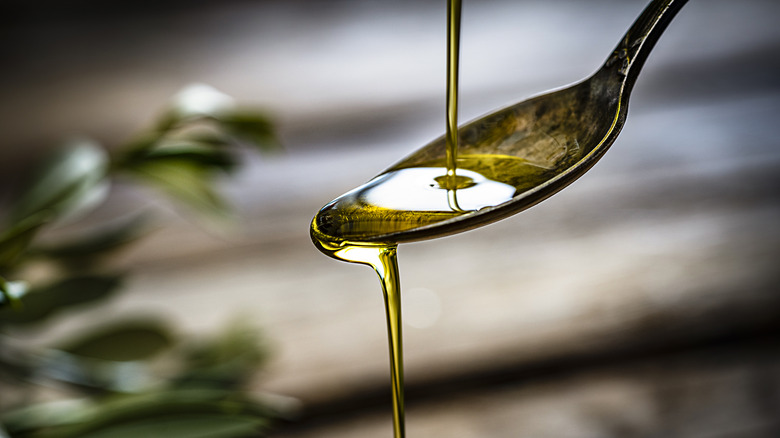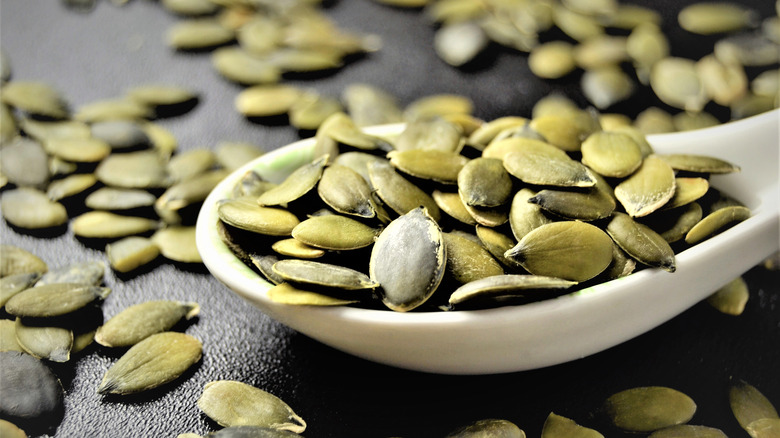Everyone needs at least seven hours of sleep each night, but sometimes your blissful sleep can be rudely interrupted by your bladder. As much as you try to ignore it, you roll out of bed, find your way to the bathroom, and appease your bladder. Regular nighttime bathroom runs, called nocturia, can make it hard for you to get back to sleep, particularly when it’s several times a night.
Sometimes nocturia is caused by drinking too much fluid close to bedtime or taking medications that cause you to pee more frequently. Waking up to pee might also be a warning sign for your prostate. According to a 2014 study in the Journal of Traditional and Complementary Medicine, pumpkin seed extract might be able to help. The study had people take 10 grams of pumpkin seed oil every day for 12 weeks. The pumpkin seed oil reduced the number of times they needed to pee during the day and night and lowered their urinary incontinence and urgency.
Pumpkin seed oil has beta-carotene, vitamin E, vitamin D, and tocopherols that improve your overall health, but the researchers pointed to the sitosterol to improve people’s urinary symptoms. Pumpkin seed oil has been particularly helpful for relieving lower urinary tract symptoms associated with benign prostatic hyperplasia (BPH).
Pumpkin seed oil might relieve BPH symptoms
Men concerned with their prostate health might already be familiar with saw palmetto extract. According to a 2023 review in the American Journal of Clinical and Experimental Urology, saw palmetto’s key ingredient, beta-sitosterol, can reduce uncomfortable urinary symptoms of BPH. Pumpkin seed oil has 15 milligrams of sitosterol in 10 grams. A 2009 study in Nutrition Research and Practice found that saw palmetto oil and pumpkin seed oil can similarly improve BPH symptoms and quality of life, and both allowed people to achieve maximal urinary flow.
Pumpkin seed oil might be almost as effective as medication for BPH. In a 2021 study in BMC Urology, one group of men with BPH took 360 milligrams of pumpkin seed oil twice a day while another group took tamsulosin, a prescription drug to treat BPH. Although the tamsulosin had a greater improvement in BPH symptoms after three months, the group that took pumpkin seed oil also saw relief of their BPH symptoms without side effects.
Other health benefits of pumpkin seed oil
If you take pumpkin seed oil to help with your urinary health, you might also enjoy other health benefits. According to a 2017 review in the International Journal of Pharmacognosy and Phytochemical Research, pumpkin seed oil has plenty of omega-3 and other fatty acids to reduce inflammation in your brain, bladder, and prostate. Pumpkin seeds combined with a diet rich in zinc might reduce the effects of lead contamination and also treat infertility in men. The antioxidants in pumpkin seed oil might also protect your heart and reduce your blood pressure.
Pumpkin seeds and pumpkin seed oil might also have cancer-fighting properties. Pumpkin seeds have phytoestrogens, and diets rich in these phytoestrogens can reduce your risk of breast cancer. The plant proteins in pumpkin seeds have antiviral and antifungal properties that could be used to create medicines that treat cancer. Combined with certain antibodies, this plant protein found in pumpkin seeds might slow the growth of melanoma cells.


